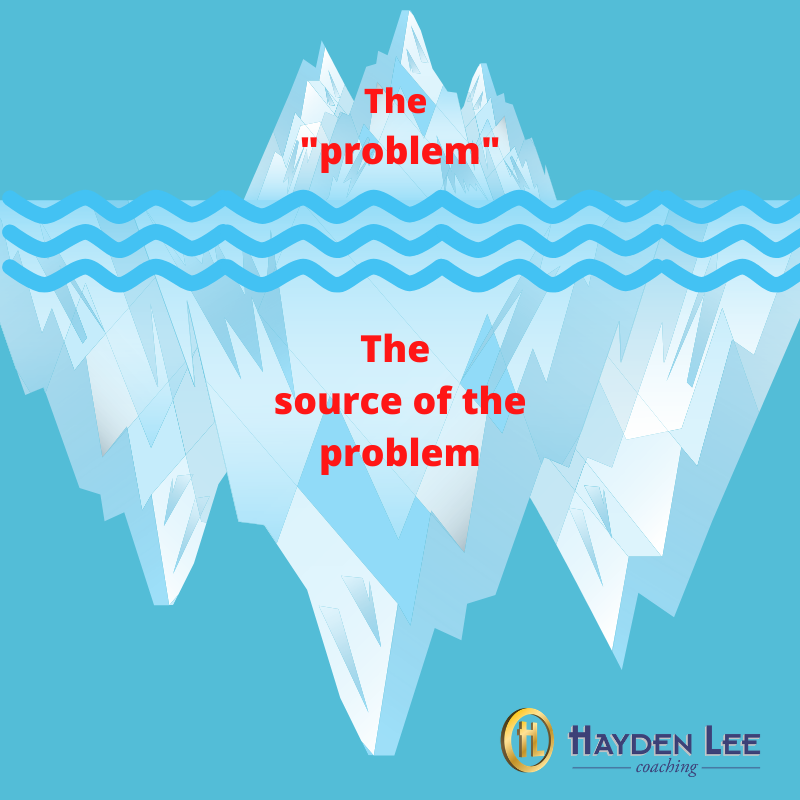“What’s this really about?”
This is one of my favorite coaching questions!
This is a question that coaches must ask often if they hope to create lasting change within their clients.
If you’re not a coach and hope to have significant growth in any area of your life, then you must also ask yourself this question often…or partner with somebody who has the courage to do so! (Ahem, like a coach.)
The inconvenient truth is that what you think is your problem is not really your problem.
Work problems. Family problems. Relationship problems. Financial problems. Health problems. Business problems. Clearly there’s no shortage of problems to go around.
You see, if you solve a problem, it will just come back again tomorrow. If you solve the source of the problem, it goes away forever.
And what’s at the source of all the problems that you have? You are.
Yup, like our good friend Maya Angelou said, “If you don’t like something, change it. If you can’t change it, change your attitude.”
I’ll further add to Ms. Angelou’s brilliance by saying, “If you can’t change your attitude, then change yourself.”
Good coaches help clients increase self-awareness, learn new things, and achieve meaningful goals with some accountability sprinkled here and there. Extraordinary coaches trust their intuition to dive deeper. They provide mic dropping insights that forever transform how clients see themselves and how they see the world around them.
You might not readily know what your problem is really about, so here’s a little help that may get you started. Like we teach in our Neuroscience of Coaching course, emotions are tied to learning. That means that if you don’t know something, you still have something to learn. And learning only takes place when there is some emotion involved. The most common emotions involved with “problems” are underlying fear, anger, or sadness/shame.
So back to your “problem”…
“What’s this really about?”
Wait at least 10 seconds before you answer. Seriously, stop, slow down, take a deep breath, and really think about it.
“So, what needs to change in you for your ‘problem’ not to be a problem ever again?”


Leave a Reply